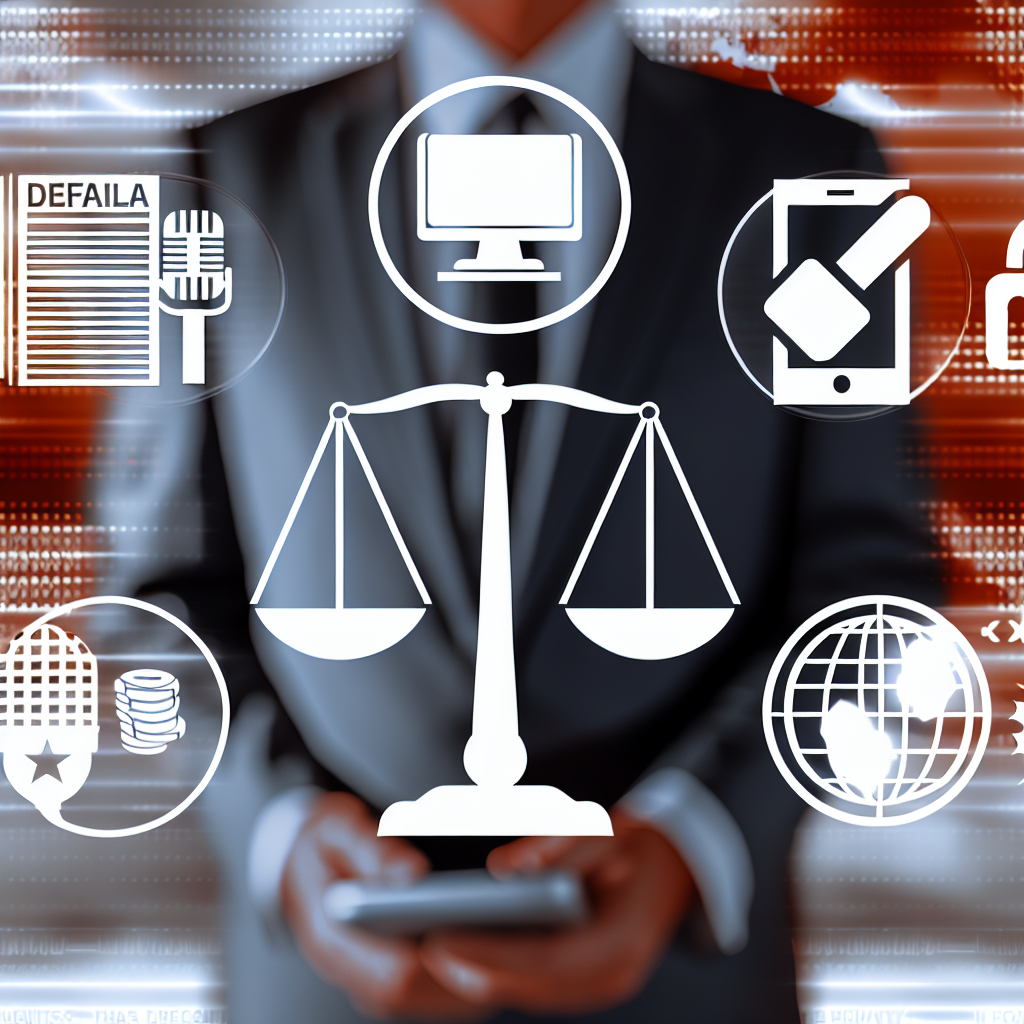
Defamation and Privacy in Media: Legal Risks
Defamation and Privacy in Media: Legal Risks
In an increasingly interconnected world, the laws surrounding defamation and privacy in media are vital for both individuals and organizations. Understanding the complexities of these legal concepts helps in navigating potential pitfalls that can arise in a media-driven environment. At The Consultant Global, we leverage our extensive experience in compliance and risk management to guide clients effectively through these legal landscapes, ensuring they are well-informed and protected.
Understanding Defamation
Defamation refers to the act of making false statements about an individual or organization that can harm their reputation. Laws regarding defamation vary considerably across jurisdictions, but the central premise remains consistent: protecting individuals from damaging misinformation.
The Two Forms of Defamation
- Slander: This refers to defamatory statements made in a transient form, typically spoken words, gestures, or sounds.
- Libel: Unlike slander, libel is the written or published form of defamation, typically found in print, online, or broadcast media.
Elements of a Defamation Claim
To successfully prove defamation, certain elements must be established:
- False Statement: The statement in question must be demonstrably false.
- Publication: The false statement must have been communicated to a third party.
- Fault: There must be a degree of fault on the part of the publisher—negligence or actual malice in the case of public figures.
- Damages: The claim must show that the false statement caused actual harm or damages to the person’s reputation.
Privacy in Media
In parallel to defamation, privacy rights become paramount in media considerations. Individuals have the right to control how their personal information is used and shared, making privacy a key concern for media entities.
Types of Privacy Violations
- Intrusion of Solitude: Involves invading someone’s personal space, physically or otherwise, without consent.
- Public Disclosure of Private Facts: Revealing private information that would be highly offensive to a reasonable person.
- False Light: Publishing information about an individual that is misleading and portrays them in a false light.
- Appropriation of Name or Likeness: Using someone’s image or name for commercial purposes without consent.
Consequences of Infringing Privacy Rights
Infringement on privacy rights can lead to significant legal repercussions, including:
- Legal Action: Individuals may pursue claims against media organizations.
- Financial Compensation: Plaintiffs may receive compensation for damages incurred.
- Reputation Loss: Media entities can suffer reputational damage if not handled appropriately.
The Legal Standards of Defamation and Privacy in Various Jurisdictions
Legal standards for defamation and privacy can differ markedly between territories, particularly between the U.S. and U.K., with the U.S. adhering to a more lenient standard to protect free speech.
Comparative Analysis
- United States: The First Amendment provides broad protections for free speech; however, public figures must prove actual malice to succeed in defamation cases.
- United Kingdom: The U.K. has a stricter defamation regime, where the burden often lies with the defendant to prove the truthfulness of their statements.
- United Arab Emirates: Privacy laws are stringent, emphasizing the protection of individual rights, which aligns closer with European standards than American ones.
Risk Mitigation Strategies
To effectively manage the legal risks associated with defamation and privacy issues in media, organizations should employ specific strategies, including:
1. Comprehensive Legal Training
Providing legal training for employees, particularly those involved in content creation and dissemination, can help them understand the implications of their actions and the laws governing them.
2. Clear Editorial Guidelines
Establishing clear editorial policies can guide staff in maintaining compliance with defamation and privacy laws while still producing impactful content.
3. Regular Audits
Conducting regular audits of content and practices will help identify potential legal vulnerabilities before they become issues.
4. Utilizing Legal Counsel
Consulting with legal experts can ensure that organizations are always informed about the latest developments in defamation and privacy law.
Conclusion
Defamation and privacy in media represent significant legal landscapes that require keen understanding and robust strategies for navigating. Organizations must prioritize compliance to mitigate risk while safeguarding their reputation. At The Consultant Global, we specialize in guiding businesses through these complex legal waters, ensuring they remain proactive in protecting their interests. Our extensive and unique experience in international, government, and private industries allows us to advise our clients effectively, making us a trusted partner in compliance and risk management.
Through our multilingual capabilities and broad cultural understanding, we empower our clients to flourish in diverse environments. Our mission is clear: to be the trusted advisor you need to elevate your business to new heights. Let’s discuss how The Consultant Global can become your go-to consultant for navigating the intricate realm of defamation and privacy in media.




Leave a Reply